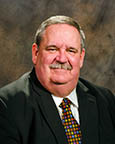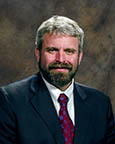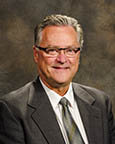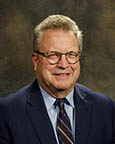GREELEY – After months of studying whether to enter the municipal broadband market, Greeley City Council, on Tuesday, said no to following in the footsteps of its neighboring cities.
The council was 6-1 against allowing staff to pursue either a stand-alone city-owned Internet Service Provider (ISP) or issue a request for proposals (RFP) for a private/public partnership. With the decision, it appears Greeley becomes the first community in Colorado to put its trust in its current providers of high-speed internet.

Mayor John Gates thanked the committee for its work and said he believes that no matter what its priority rank would have been, there would not have been consensus.
Gates said at one point in time he thought he could “easily” support a private/public partnership, especially after hearing a presentation at another meeting a couple of years ago. But after getting all the information, he had come full circle and was “ready to kick this can down the road.”
“We don’t have the hard numbers on this,” Gates said “But the soft numbers I’ve seen, scare the hell out of me. … I was personally impressed with (Allo). If they want to come in and get permits and lay cable, I don’t have a problem with that. What I do know is that’s not on our dime. … I cannot with a clear fiscal conscious proceed with either an ISP or a private/public partnership. Most succinctly, I believe it’s a money pit.”
Gates was referring to Allo Communications, a private broadband company based in Omaha, Neb. Allo submitted an “unsolicited” letter of interest to Greeley weeks ago about partnering with the city. It has made its mark in the industry by securing private/public partnerships in most of the 12 communities it offers internet, with all but two located in Nebraska. Breckenridge and Fort Morgan in Colorado have partnered with the company.

A private/public partnership is one where government takes on some of the risk and investment while the private provider takes on some as well, the amount of risk is dependent on the contract negotiated between the two entities. In can include anything from the city relaxing regulations and fees to fully funding the infrastructure and leasing it back to the company.
Most of the city council members said that type of set-up uses tax dollars to pick losers winners, and they were not willing to do that. Councilman Tommy Butler was the only member of the council who preferred issuing an RFP to see what kind of interest there was from companies wanting to partner with the city.
The private/public partnership was the choice of a 10-month long study conducted by a community group put together to look at five options that also included a stand-alone ISP, a grant program for small businesses, working with existing providers and doing nothing.
The number of communities taking on municipal broadband using an enterprise fund continues to grow along the Front Range and across Colorado. Communities saying yes to getting in competition with private sector giants such as Comcast and Century Link do so in part due to an unproven public perception that municipalities can supply a superior service at a lesser cost.
Fort Collins, Loveland and Longmont have all taken on the challenge by going it alone to develop, install and operate a new utility. They’ve used other city-run utilities, such as electricity, to back the multi-million-dollar investments. Their municipal broadband bonds are guaranteed against those other enterprise revenues. If the broadband venture fails, electric customers will see their rates increase.

Longmont continues to boast success; however, many argue Longmont’s circumstances were much different. It got in when construction costs were much lower and with a minimal amount of infrastructure costs because most of it was in place. Longmont initially bonded $45 million (it has borrowed more in the five years since rolling out the system). Fort Collins bonded $145 million, and Loveland took on $100 million in debt. Greeley was estimated around $120 million in initial costs.
Moreover, Comcast and Century Link left Longmont alone in the beginning, so it was able to supply residents with 1 Gigabyte (1 GB) service far less than any other company. However, those companies have since stepped-up their competition, and Longmont no longer offers the service at below-market rates.
Additionally, Complete Colorado recently learned that Longmont’s transparency around whether its venture remains successful is diminishing. An open records request by Complete Colorado for updated balance sheets through 2019 that were previously released by the city for 2015 and 2016, show that in 2018, Longmont stopped separating its broadband enterprise liabilities, assets, revenue and expenses from its electric enterprise liabilities, assets, revenue and expenses.
That change, coincides with recently increased electric rates in Longmont. Although Longmont officials say that is not attached to broadband failure, Complete Colorado continues to investigate the situation.
Lori Sherwood, a broadband consultant hired by Greeley said the city received a “cold” letter of interest in partnering with the city from Allo. She added it was rare for a company, and a great opportunity for Greeley.
Allo’s letter outlined several unknowns including:
- Permitting costs, which it asks for minimal costs and ease in the process.
- Availability to backyard easements.
- Relationships with Xcel Energy.
- Availability of public space for structures.

Councilman Brett Payton said he was not impressed by Allo coming to Greeley with a private/public option, unapproached.
“The fact that Allo stepped through the door uninvited – I litigate for a living – there are too many “rare opportunities” for litigators. So, I by no means, am excited by that,” Payton said. “In fact, often that’s how you end up in problems. Also, if Allo was so willing to come when we heard we were talking about this, why aren’t they in this city right now? Why haven’t they come and asked for permits? Do they only do (private/public partnerships)?”
Payton also said he wasn’t sure why there was no information on what the committee found about options other than a city-owned ISP or the public/private model. He added he’s thought about this from a different perspective for several years.
“The one fund that we hear quarterly that is dropping quarter after quarter is our franchise fund on telephone,” Payton said. “Over the weekend, I had this vision of a guy in 60 years sitting at a hole saying ‘this fiber’s in my way.’ and ripping it out of the hole. I can’t get behind city government coming in and fixing customer service problems. That is a market-driven issue. We don’t get into other areas where there are customer service issues.”

Payton recommended “getting out of the way” of expansion for all companies. Most of the council members agreed with Payton.
Councilman Dale Hall added he could not support picking winners and losers in a private/public partnership.
“I’m not a big fan of public/private partnerships,” Hall said, pointing out what the committee said are the weaknesses of working with current providers is they don’t have good track record, are not well liked, or won’t change current behaviors. “That seems a bit fuzzy to me,” Hall said. “I think we are better off working with current providers than against them. But I don’t know how you solve a good track record or not well liked.”
Task force committee chairman Bret Naber, the chief information officer for the Information Management and Technology office of the University of Northern Colorado, agreed with Hall, adding it’s likely those issues would face anyone offering broadband.
“I think the reality of any ISP is they are not well liked, generally speaking,” Naber said. “Whether it’s Comcast, or Century Link or the City of Greeley, that’s a hard thing to grapple with. You’re going to have the same problem with anyone, even if the service is marginally better than what Comcast provides.”

Councilwoman Kristin Zasada said she couldn’t support it mostly because of her philosophical beliefs that government shouldn’t get involved, but partly because previous to the presentation on the broadband venture, city council had a presentation from city staff about how the city is in the deficit concerning infrastructure already and advocated for a renewal of sales taxes to maintain current levels and not fall behind further.
Council agreed with those renewals. Greeley voters will see two tax renewals – one for roads specifically, and one on food that transfers a portion of its collections to roads – on the November ballot.
“We haven’t seen a hard breakdown of numbers yet,” Zasada said. “I’m leery to enter into anything that is going to require us to have more infrastructure liabilities when we already have many that are backlogged.”
Zasada asked for possibly finding a way to work with small businesses after the consultant reported one business in the downtown area reported Comcast wanted $18,000 to put the infrastructure in place to get high speed.

The director of that business, a nonprofit, who served on the advisory board was in attendance, as was a representative of Comcast, who after the meeting talked with the woman and promised to work with her to take care of the issue.
Councilman Ed Clark said by the time the city laid a bunch of fiber the technology could be obsolete.
“That’s just not a space that we need to get into,” Clark said. “We can do things regulatory. We can open holes. We can allow whoever wants to put their line in that hole, to put their line in that hole.”
Councilman Mike Fitzsimmons said he came at this from a philosophical one, as most of the council members did.
“I don’t think we can regulate business so that competition is fair and equal to everybody,” Fitzsimmons said.


